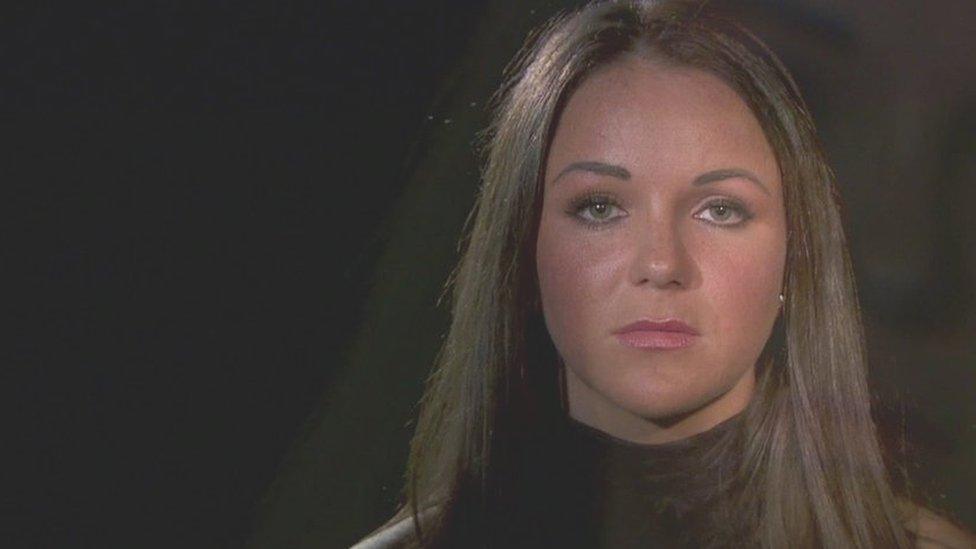Rosacea: 'Your skin doesn't define you'
- Published
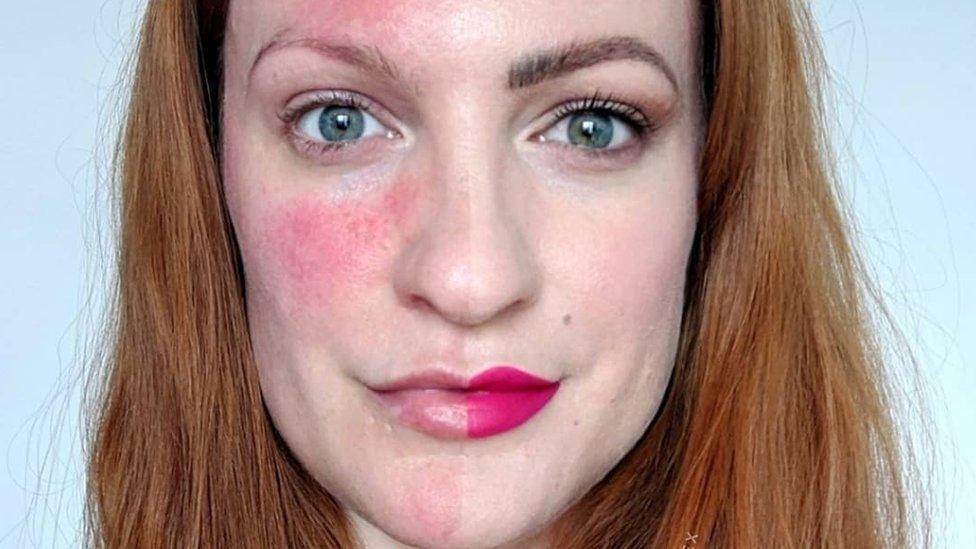
Lex Gillies, 37, was diagnosed with rosacea when she was 21
Rosacea is a common but misunderstood condition that is thought to affect millions. It is incurable, and those who have it must often endure a sustained treatment regime, restrictions on what they eat, drink and do and, in some cases, judgements or jibes from others. But a growing community and statements from high-profile sufferers have shown that they are not alone.
Lex Gillies, from York, was a 21-year-old student when she was diagnosed with rosacea.
"I didn't want to do anything that would make people turn and look at me because I didn't want people to notice my skin," she says.
The skin condition, characterised by a reddening of the face caused by dilated blood vessels with small bumps and spots, similar to acne, is common.
Some reports suggest as many as one in 10 people in the UK have it.
Controlling its physical appearance, through treatment and managing triggers such as alcohol, spicy food, exercise and even the sun, is one thing. Managing the impact on mental health is another.
Lex, a blogger and British Skin Foundation Ambassador, has spent eight years documenting her relationship with rosacea, and says she has learned to understand and accept her skin as it is rather than treat it "as my enemy".
"I'd been seeing my rosacea as this thing that I'd had to battle and overcome and felt my skin was letting me down and being a traitor by allowing it to take over," she says.
"But actually it was my skin desperately trying to alert me to the fact something was wrong."
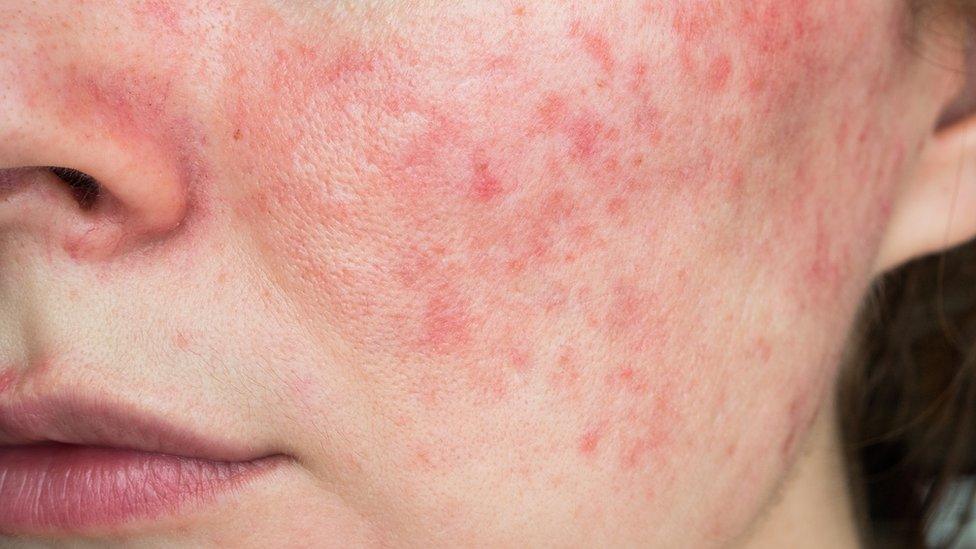
Rosacea is a common but incurable skin condition which mainly affects facial areas
She has written extensively on the impact rosacea, external can have on people's mental health, saying "it still isn't something that's taken seriously".
Her stance made her an unlikely ally - though not on political grounds - of MP Sir Edward Leigh, who has rosacea and recently spoke out about the abuse he receives as a result.
He complained of being labelled a "red gammon head" and a "ruddy-faced buffoon".
Gainsborough MP Sir Edward, who raised the abuse during a Westminster Hall debate in January, said he had learned to take comments about it "with a pinch of salt" but said he was worried about the impact on younger generations and the support available to them.
On this point, Lex agrees, and though Sir Edward has been criticised for some of his political views, including recent remarks about Ukrainian refugees, she says his appearance should not be fuel for taunts.
She has previously pointed out, external how a "cruel jibe at an MP" reflects on others who "take those jokes to heart".

Sir Edward Leigh MP has called for improved psychological support for people with skin conditions such as rosacea
Janet Doyle, 71, from Hull, was diagnosed with the condition in her 30s and says some days she finds it hard to go outside.
"It's your face at the end of the day. It's what people see first," she said.
"It just makes you feel really awful, like, what's the point? It can be really depressing. Sometimes I think about not going out of the door."
Jim Howe, 64, from Skegness, said he had also found it difficult to cope with the unwanted attention his appearance can bring.
He described sitting outside a bar in Spain when a friend turned to him and said 'You've got a face like an alcoholic'.
"People judge you when you've got rosacea, and it can be quite depressing," he said.
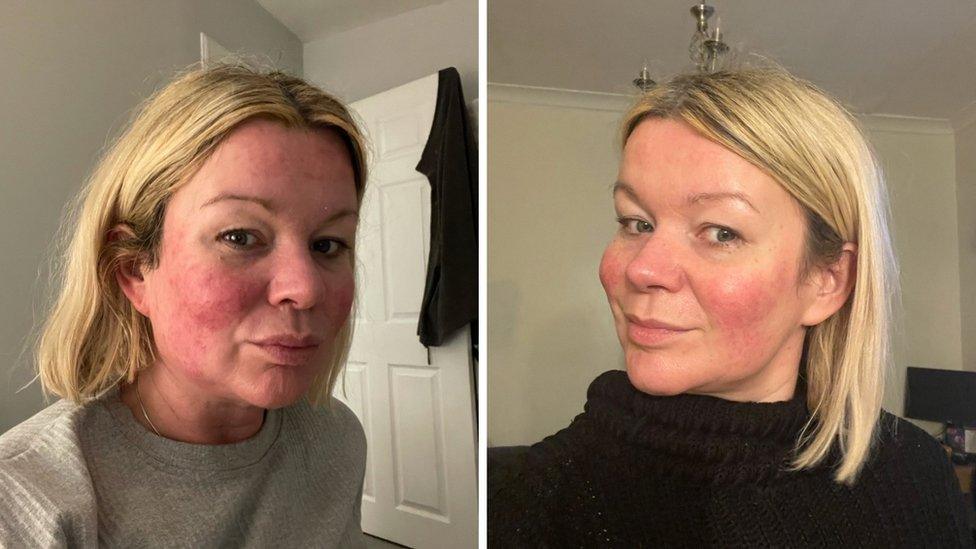
Nicola Dalby said she had found online support to be a "lifeline" for her
Nicola Dalby, from Ayrshire, said she first noticed the condition, which affects her cheeks, nose and forehead, in her teens and had struggled at times, fearing she would never "grow out of having horrible skin".
However, she found comfort and support from speaking to others online.
She describes a Facebook community she is part of as being a "lifeline" for her in recent years, giving her the opportunity to share experiences and swap advice and, importantly, helping her realise she was not "on my own".
Access to professional psychological support for people with skin conditions is something the British Association of Dermatologists says is a "significant problem" with big gaps in provision in certain parts of the UK.
It said there was "a large body of evidence" demonstrating the impact it could have on a person's mental health and quality of life.
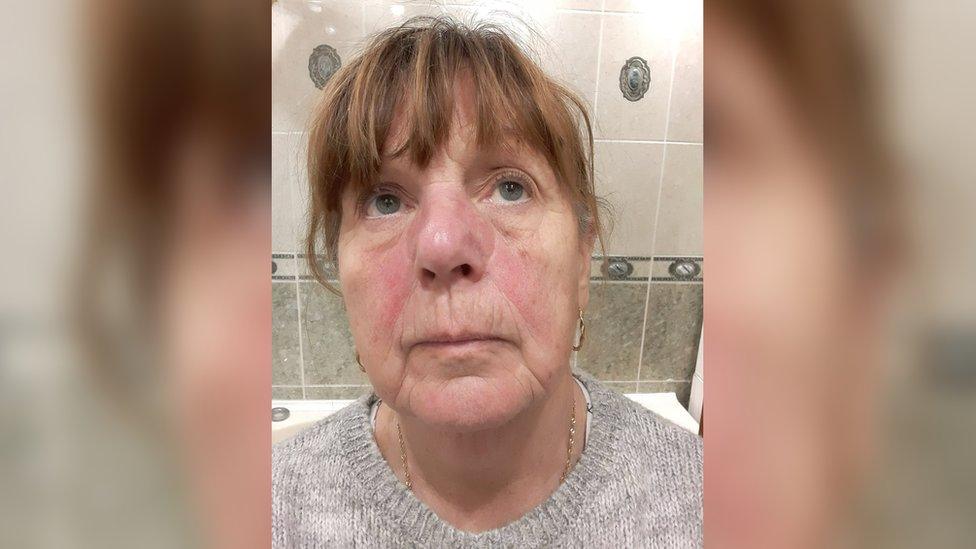
Janet Doyle said her rosacea has meant she has not wanted to leave the house some days
UK charity Changing Faces offers support to anyone living with a scar, mark or condition on their face or body.
Chief executive Heather Blake says too often people's mental health is not taken into account, with the focus being placed on the physical impact of the condition.
She says the charity can offer support for those who may be considering cosmetic procedures and will also provide counselling for those battling the mental impact
"We believe people have the right to choose how they live their life with a visible difference," she says.
"Our role is to signpost people to the right support.
"And whilst people with visible differences, like rosacea, continue to experience staring, negative comments and worse, we'll keep campaigning to challenge the discrimination people face because of how they look."
In January, after Sir Edward raised his concerns about provision, health minister Gillian Keegan said the government was "committed to achieving parity between mental and physical health services".
For Lex, after 16 years of living with the condition, she says she is no longer at war with her skin, but acknowledges that "a lot of people are too early in their journey to understand it or accept it yet".
"My mantra is your skin doesn't define you. It's something you have to maintain but that is not who you are. You have rosacea, but you are not rosacea."

Follow BBC Yorkshire on Facebook, external, Twitter, external and Instagram, external. Send your story ideas to yorkslincs.news@bbc.co.uk, external.
Related topics
- Published26 January 2022

- Published25 January 2020
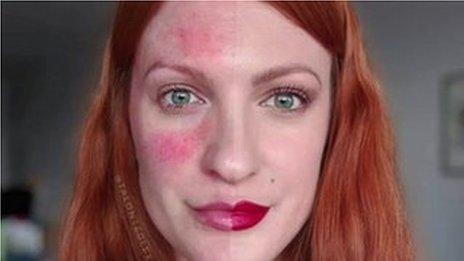
- Published10 January 2020
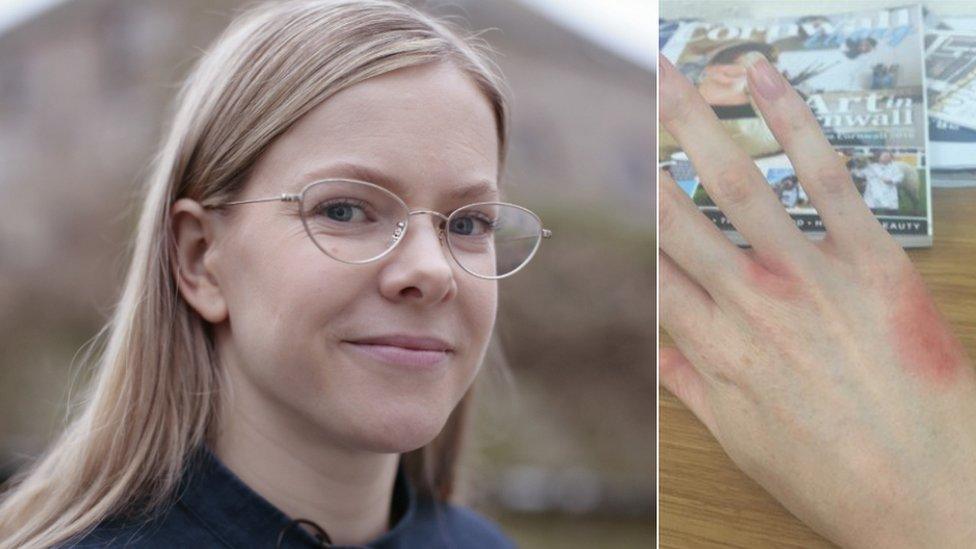
- Published29 August 2016
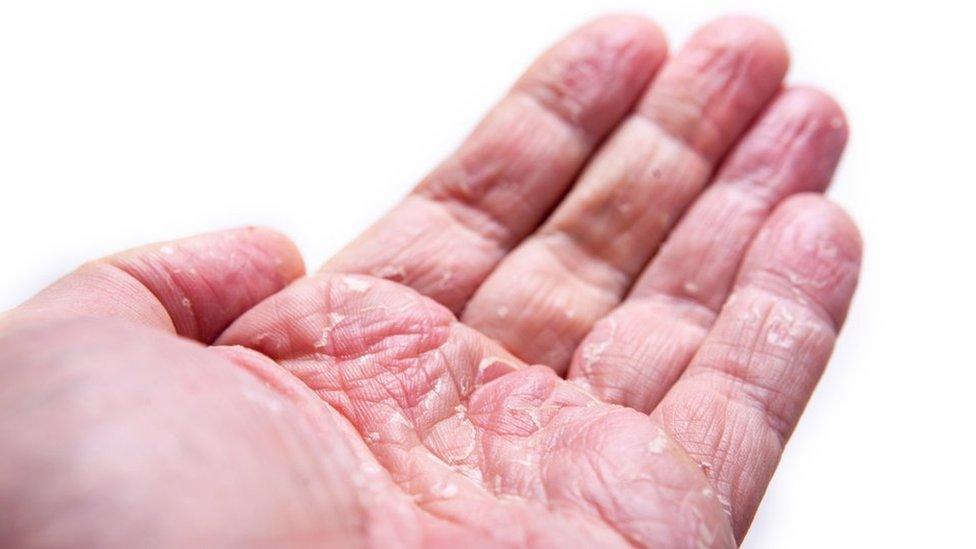
- Published29 October 2015
